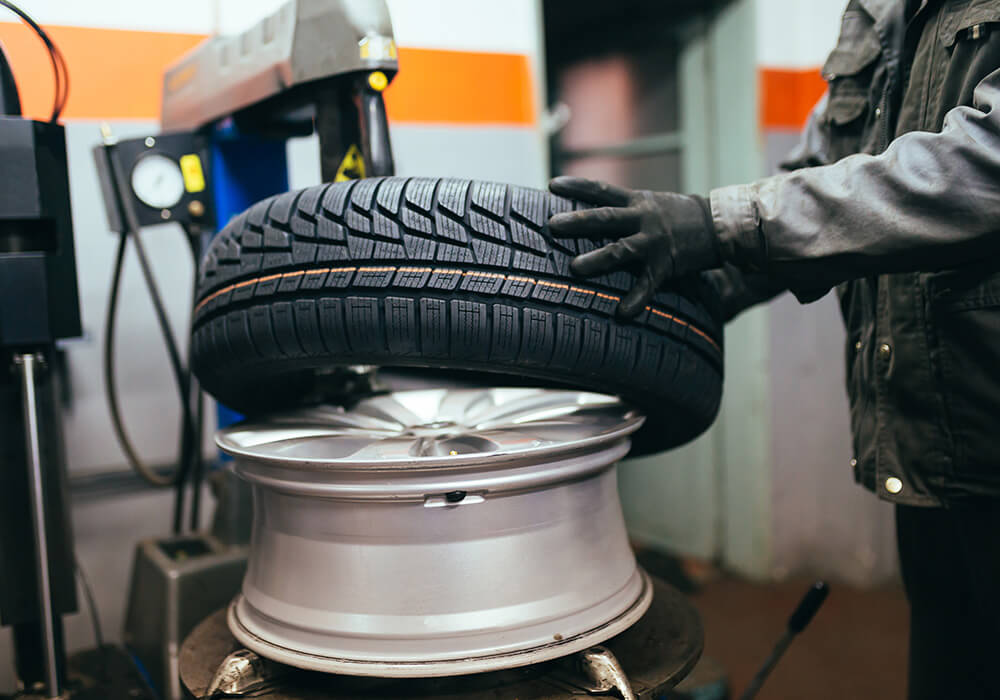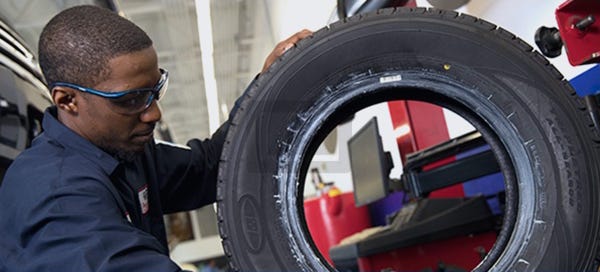Morris Tires: Your Partner for Expert GMC Tires Service
Morris Tires: Your Partner for Expert GMC Tires Service
Blog Article
Tire Solution: The Influence of Climate Condition
When it involves guaranteeing optimum performance and security when driving, understanding the effect of weather on tire service is essential. From scorching heat to icy roads, each climate component can significantly affect tire functionality and general driving experience. By diving into the effects of differing climate condition on tires, chauffeurs can get important understandings that might enhance their car's performance and long life. In this discussion, we will explore the elaborate partnership between climate condition and tire solution, clarifying the importance of weather-specific tire maintenance methods and considerations.
Warm and Tire Performance
When subjected to heats, tires experience adjustments in performance that can considerably impact vehicle safety and security and handling. The warm generated from long term driving or heat conditions causes the tire rubber to soften, causing lowered walk life and boosted wear. As the rubber becomes softer, the tire's grip when traveling lessens, influencing braking distances and total traction. In severe situations, excessive warm can even cause tire blowouts, positioning an extreme safety and security threat to the lorry and its occupants.

Winter Effects
Cold weather problems can have a substantial influence on tire performance and safety and security. In chilly weather, tires might also shed air pressure a lot more quickly, which can affect taking care of and fuel performance.
To mitigate the effects of cool weather on tires, it is critical to consistently examine tire stress and inflate them to the producer's suggested degrees. Utilizing winter or all-season tires developed for winter conditions can also improve traction and hold on icy or snowy roadways. Appropriate tire maintenance, consisting of routine examinations for wear and damages, ends up being a lot more vital during chillier months to guarantee optimum efficiency and security.
Rainy Issues Effect
Tires with worn-out footsteps are extra vulnerable to hydroplaning, where a layer of water builds up between the tire and the roadway surface area, leading to loss of grip. To battle this, vehicle drivers ought to routinely check their tires for appropriate walk depth and think about spending in tires specifically created for damp conditions.
Additionally, stormy weather can additionally lower visibility, making it challenging for drivers to see the roadway in advance plainly (GMC Tire Service). In such conditions, it is important to adjust driving rates appropriately and maintain a risk-free adhering to distance to enable unexpected stops. Correctly filled with air tires can also aid in maintaining control on wet roads by giving much better handling and hold
Snow and Tire Safety And Security
When driving in snowy problems, having the appropriate great post to read tires can make a substantial distinction in security and performance. Winter season tires are designed with unique rubber substances and walk patterns to provide better traction on snow and ice compared to all-season tires.

It is important to comply with producer instructions when utilizing and installing tire chains to stop damages to the tires and automobile. By picking the right tires, maintaining proper inflation, and considering added grip aids like tire chains, motorists can boost their security when navigating snow-covered roadways.
Weather-Related Tire Upkeep
Weather-related tire maintenance incorporates a variety of methods intended at making sure ideal tire feature and longevity in various climate circumstances. One crucial aspect of weather-related tire upkeep is tire stress policy. Inspecting tire tread on a regular basis and changing tires when step wear reaches a particular deepness is essential for maintaining traction and stability in damaging weather condition.
Conclusion
In verdict, weather condition conditions have a significant influence on tire performance and security. From warmth affecting tire pressure and put on to cold weather lowering grip, it is essential to consider the weather condition when keeping and using tires.
In this conversation, we will discover the detailed partnership in between weather conditions and tire service, shedding light on the significance of weather-specific tire upkeep practices and factors to consider.

Report this page